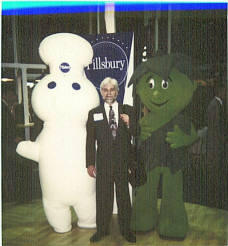"In 2008, overpaid bankers taking big risks with other people’s money brought the world economy to its knees. The last thing we need is to give them a chance to do it all over again."
We meant to get this up yesterday, but some kind of Flu-thing knocked this out of the box.
It seems, that, happy-days-are-here-again, if you read the article in the Saturday New York Times;
After Off Year, Wall Street Pay Is Bouncing BackWorkers at the largest financial institutions are on track to earn as much money this year as they did before the financial crisis began, because of the strong start of the year for bank profits.
[Snip]
If that pace continues all year, the money set aside for compensation suggests that workers at many banks will see their pay — much of it in bonuses — recover from the lows of last year.
Hmmmm ... Then why do we keep hearing that Wall Street is going to need billions more to stay afloat?
Well, on Sunday, Nobel Prize Winner Paul Krugman was having none of that.
Money for NothingRemember that the gilded Wall Street of 2007 was a fairly new phenomenon. From the 1930s until around 1980 banking was a staid, rather boring business that paid no better, on average, than other industries, yet kept the economy’s wheels turning.
Those fat cats on Wall Street are going to need some of that extra dough - for make-up, to cover up the palm print of Krugman's slap, upside-the-head.
So why did some bankers suddenly begin making vast fortunes? It was, we were told, a reward for their creativity — for financial innovation. At this point, however, it’s hard to think of any major recent financial innovations that actually aided society, as opposed to being new, improved ways to blow bubbles, evade regulations and implement de facto Ponzi schemes
[Snip]
Still, you might argue that we have a free-market economy, and it’s up to the private sector to decide how much its employees are worth. But this brings me to my second point: Wall Street is no longer, in any real sense, part of the private sector. It’s a ward of the state, every bit as dependent on government aid as recipients of Temporary Assistance for Needy Families, a k a “welfare.”
I’m not just talking about the $600 billion or so already committed under the TARP. There are also the huge credit lines extended by the Federal Reserve; large-scale lending by Federal Home Loan Banks; the taxpayer-financed payoffs of A.I.G. contracts; the vast expansion of F.D.I.C. guarantees; and, more broadly, the implicit backing provided to every financial firm considered too big, or too strategic, to fail.
One can argue that it’s necessary to rescue Wall Street to protect the economy as a whole — and in fact I agree. But given all that taxpayer money on the line, financial firms should be acting like public utilities, not returning to the practices and paychecks of 2007.
Bonus Riffs
This Didn't Make The 11PM News ...
In A Nutshell ...
Breaking! ... Obama Takes Action, Seizes AIG's March Madness Office Pools and Brackets
A Night At The Wall Street Meltdown
Rich on Ruben: "The Citi may never sleep, but he snored ..."
Top Ten Cloves: Things About Citigroup Keeping Stadium Sponsorship After Getting Government Bailout
Tuesday, April 28, 2009
Shorter Krugman - Smack! ...Upside The Head!
Subscribe to:
Post Comments (Atom)









































No comments:
Post a Comment